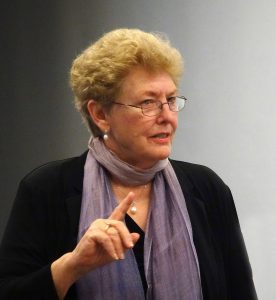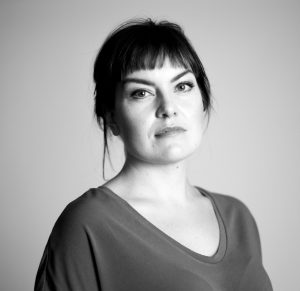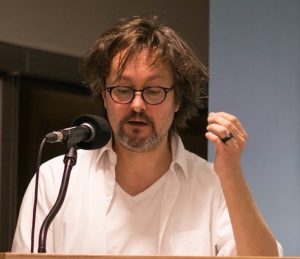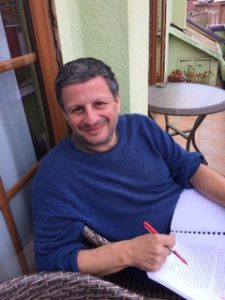Keynote Speakers
Our keynote speakers have approached the fundamental questions addressed within this conference in their work, and one of our aims here is to bring approaches from different fields together for a lively discussion.
N. Katherine Hayles

N. Katherine Hayles, Distinguished Research Professor at the University of California, Los Angeles and the James B. Duke Professor of Literature Emerita at Duke University, teaches and writes on the relations of literature, science and technology in the 20th and 21st centuries. Her books have won numerous awards, including the Rene Wellek Prize for the Best Book in Literary Theory in 1998-99 for How We Became Posthuman: Virtual Bodies in Cybernetics, Literature, and Informatics, and the Suzanne Langer Award for Outstanding Scholarship for Writing Machines. She teaches courses on media theory, experimental fiction, literary and cultural theory, finance capital and culture, science fiction, and contemporary American fiction. Her latest book is Unthought: The Power of the Cognitive Nonconscious.
Moral Machines / Conference 2019 / Keynote Abstract / N. Katherine Hayles
Bernard Stiegler

Bernard Stiegler is Professor of Philosophy at the University of Compiègne and Distinguished Professor at the Institute of Advanced Studies at the University of Nanjing. He also directs Institut de Recherche et d’Innovation (IRI) at the Centre Pompidou de Paris. After his fundamental work La technique et le temps I-III (1998-2001, Technics and time), in which he develops a thought-provoking techno-anthropology, he has written numerous books, among others De la misère symbolique (2004) on art in the epoch of hyperindustrialization, Mécréance et discrédit (2004, Decadence of Industrial Democracies) on political transformations induced by contemporary digital technologies, and Automatic society 1. The future of work (2016), where he advocates a radical solution to the crisis posed by automation and consumer capitalism. His theory shows how in a detailed manner technology affects individual and collective individualization.
Erich Hörl

Erich Hörl is full professor of Media Culture and Media Philosophy at the Leuphana University Lüneburg, Germany. Currently, he is working on a general ecology of media and technology as well as on a critique of the processes of cybernetisation of every form of life and every mode of existence. He publishes internationally on the history as well as the problems and challenges of the contemporary technological condition. His current book project concerns The Critique of Environmentality. Hörl has, for example, edited an ambitious volume General Ecology: The New Ecological Paradigm (with James Edward Burton). In 2018 an English translation of his canonical work Sacred Channels: On the Archaic Illusion of Communication has been published (with a preface by Jean-Luc Nancy) with Amsterdam University Press.
Moral Machines / Conference 2019 / Keynote Abstract / Erich Hörl
Maria Mäkelä

Maria Mäkelä (PhD, Docent) is Senior Lecturer in Comparative Literature and Director of Narrare: Centre for Interdisciplinary Narrative Studies at the University of Tampere, Finland. She is also the principal investigator of the Consortium Instrumental Narratives: The Limits of Storytelling and New Story-Critical Narrative Theory (iNARR, funded by Academy of Finland 2018–2022), a director of the research project Dangers of Narrative (Kone Foundation 2017–2020) where the team of narratologists collects instrumental and potentially harmful uses of storytelling via online crowdsourcing, and Vice-President of the International Society for the Study of Narrative. Mäkelä has applied literary narratology to the analysis of reality television, journalism, sex scandals and Facebook status updates. Her recent interests include viral and organizational storytelling and the continuum from the medieval exemplum to contemporary moralistic masterplots.
Moral Machines / Conference 2019 / Keynote Abstract / Maria Mäkelä
Frédéric Neyrat

Frédéric Neyrat is Associate Professor of Comparative Literature and Mellon-Morgridge Professor of Planetary Humanities at the University of Wisconsin-Madison. He is a French philosopher with expertise in the environmental humanities and contemporary theory. Neyrat is the editor of Alienocene and a member of the editorial board of the journals Multitudes, Lignes, and Les Cahiers Philosophiques de Strasbourg. Recently, he published Echapper à l’Horreur: Court Traité des Interruptions Merveilleuses (2017), Atopias: Manifesto for a Radical Existentialism (2017) and The Unconstructable Earth: An Ecology of separation (2018).
François-David Sebbah

François-David Sebbah is Professor of Philosophy at the Paris Nanterre University. He is a member of l’Institut de Recherches Philosophiques (IRePh) and an associate member of the Husserl Archives in Paris and E.A. COSTECH (University of Technology of Compiègne). His research interests include contemporary ethical issues, phenomenological and post-phenomenological thinking of the French contemporary philosophers (especially Derrida, Henry, Levinas, Lyotard) as well as the intersection between philosophy and cognitive science. His publications include Qu’est-ce que la technoscience? Une thèsé épistémologique ou la fille du diable (2010) and Testing the Limit: Derrida, Henry, Levinas, and the Phenomenological Tradition (2012).
Moral Machines / Conference 2019 / Keynote Abstract / François-David Sebbah
